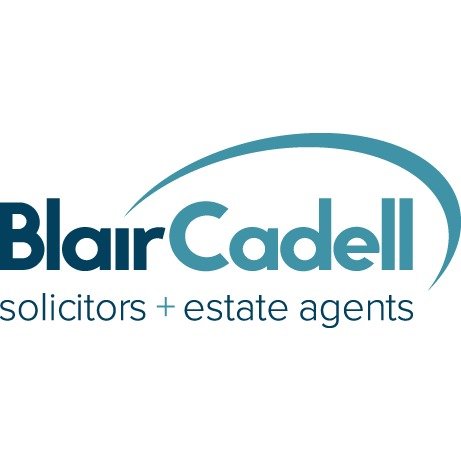Best Mortgage Lawyers in United Kingdom
Share your needs with us, get contacted by law firms.
Free. Takes 2 min.
Free Guide to Hiring a Real Estate Lawyer
Or refine your search by selecting a city:
List of the best lawyers in United Kingdom
About Mortgage Law in United Kingdom
A mortgage is a loan used to purchase property or land, typically over a long period, usually 25 years or longer. In the United Kingdom, the mortgage market is a complex sector that involves an intricate system of lenders, borrowers, and legally binding agreements. Mortgage agreements govern the relationship between the lender and the borrower, outlining repayment terms, interest rates, and default consequences. The UK mortgage market is regulated by the Financial Conduct Authority (FCA), which ensures fair treatment of consumers and the financial stability of the system.
Why You May Need a Lawyer
There are several situations in which individuals may seek the expertise of a lawyer regarding mortgages. These include:
- Understanding complex mortgage contracts before signing.
- Disputes with lenders over terms or repayments.
- Refinancing an existing mortgage or modifying terms.
- Addressing issues of mortgage arrears or potential repossession.
- Dealing with fraud or predatory lending practices.
- Navigating buy-to-let, leasehold, or shared ownership models.
Local Laws Overview
Key aspects of mortgage laws in the United Kingdom include the regulation by the Financial Conduct Authority (FCA) and the Prudential Regulation Authority (PRA), ensuring lender conduct is responsible and fair. Mortgages are typically regulated transactions under the Financial Services and Markets Act 2000. Important considerations include:
- Responsible Lending: Lenders must ensure the borrower can afford the mortgage.
- APR (Annual Percentage Rate): This represents the annual cost of a mortgage, including fees and interest rates.
- Fixed and Variable Rates: Mortgages may have fixed or variable interest rates, impacting repayment amounts.
- Re-mortgaging: The ability to switch lenders if better terms are available.
- Default Risk: Consequences for default, including repossession, are significant and strictly regulated.
Frequently Asked Questions
What is the difference between a fixed-rate and a variable-rate mortgage?
A fixed-rate mortgage has an unchanging interest rate for a specific period, typically 2 to 10 years, offering predictable payments. A variable-rate mortgage’s interest can change, making payments potentially vary with market conditions.
Can I pay off my mortgage early?
Yes, but you may face early repayment charges. It is important to check the specific terms of your mortgage agreement.
What is negative equity?
Negative equity occurs when the property’s market value falls below the outstanding balance on the mortgage, leaving the borrower owing more than the property is worth.
How can I improve my chances of getting a mortgage?
Maintaining a good credit score, saving for a larger deposit, and securing a stable income can improve your mortgage eligibility.
What happens if I miss a mortgage payment?
Missing a payment can lead to fees, a negative effect on your credit score, and eventually, potential repossession if not resolved. Contact your lender immediately if you anticipate payment difficulties.
What is the Help to Buy scheme?
The Help to Buy scheme is a government initiative aimed at helping first-time buyers purchase a home with a smaller deposit, often with government equity loans.
What role does a solicitor play in the mortgage process?
A solicitor handles legal aspects such as property searches, contract reviews, and ensuring that the title is free of any defects before purchase completion.
Can I transfer my mortgage to a new property?
This depends on the lender’s policies and is commonly known as 'porting' a mortgage. Terms and conditions apply.
What is a buy-to-let mortgage?
A buy-to-let mortgage is for investors wishing to purchase property to rent out, typically requiring a larger deposit and different evaluation criteria than residential mortgages.
What is the role of the Financial Conduct Authority in mortgages?
The FCA regulates the conduct of financial institutions, including lenders, ensuring they treat consumers fairly, promote competition, and protect market integrity.
Additional Resources
For further assistance, consider the following resources:
- The Financial Conduct Authority (FCA): Regulates lenders and offers consumer advice.
- The Money Advice Service: Provides unbiased advice on mortgages and financial products.
- The Citizens Advice Bureau: Offers free legal advice on mortgages and related issues.
- Legal Aid Agency: Provides assistance for those eligible who need legal support regarding mortgage issues.
Next Steps
If you require legal assistance regarding a mortgage, consider taking the following steps:
- Identify your specific concerns and gather all relevant documents.
- Consult a solicitor specializing in property and mortgage law for professional guidance.
- Contact local legal advisory services for initial free consultations to explore your options.
- Utilize online resources and governmental websites for additional information and support.
Lawzana helps you find the best lawyers and law firms in United Kingdom through a curated and pre-screened list of qualified legal professionals. Our platform offers rankings and detailed profiles of attorneys and law firms, allowing you to compare based on practice areas, including Mortgage, experience, and client feedback.
Each profile includes a description of the firm's areas of practice, client reviews, team members and partners, year of establishment, spoken languages, office locations, contact information, social media presence, and any published articles or resources. Most firms on our platform speak English and are experienced in both local and international legal matters.
Get a quote from top-rated law firms in United Kingdom — quickly, securely, and without unnecessary hassle.
Disclaimer:
The information provided on this page is for general informational purposes only and does not constitute legal advice. While we strive to ensure the accuracy and relevance of the content, legal information may change over time, and interpretations of the law can vary. You should always consult with a qualified legal professional for advice specific to your situation.
We disclaim all liability for actions taken or not taken based on the content of this page. If you believe any information is incorrect or outdated, please contact us, and we will review and update it where appropriate.
Browse mortgage law firms by city in United Kingdom
Refine your search by selecting a city.















